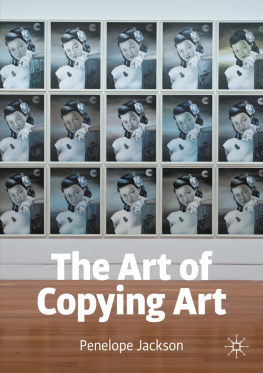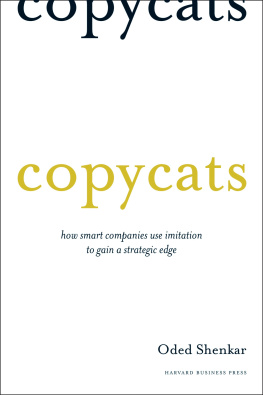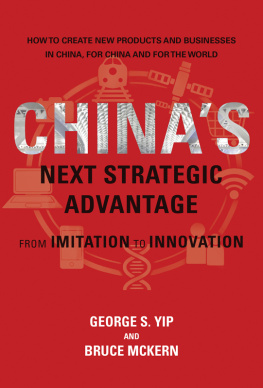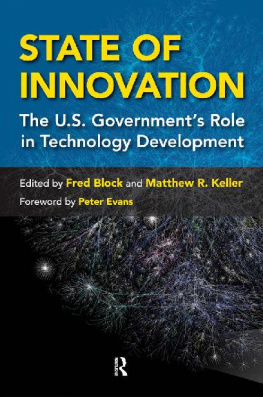THE KNOCKOFF ECONOMY
THE KNOCKOFF ECONOMY
HOW IMITATION SPARKS INNOVATION
KAL RAUSTIALA
AND
CHRISTOPHER SPRIGMAN


Oxford University Press is a department of the University of Oxford.
It furthers the Universitys objective of excellence in research,
scholarship, and education by publishing worldwide.
Oxford New York
Auckland Cape Town Dar es Salaam Hong Kong Karachi
Kuala Lumpur Madrid Melbourne Mexico City Nairobi
New Delhi Shanghai Taipei Toronto
With offices in
Argentina Austria Brazil Chile Czech Republic France Greece
Guatemala Hungary Italy Japan Poland Portugal Singapore
South Korea Switzerland Thailand Turkey Ukraine Vietnam
Oxford is a registered trade mark of Oxford University Press in the UK and certain other countries.
Published in the United States of America by Oxford University Press
198 Madison Avenue, New York, NY 10016
Oxford University Press 2012
All rights reserved. No part of this publication may be reproduced,
stored in a retrieval system, or transmitted, in any form or by any means, without
the prior permission in writing of Oxford University Press, or as expressly
permitted by law, by license, or under terms agreed with the appropriate
reproduction rights organization. Inquiries concerning reproduction outside the
scope of the above should be sent to the Rights Department, Oxford University Press,
at the address above.
You must not circulate this work in any other form and you must impose this
same condition on any acquirer.
Library of Congress Cataloging-in-Publication Data
Raustiala, Kal.
The knockoff economy: how imitation spurs innovation / Kal Raustiala, Christopher Jon Sprigman.
p. cm.
Includes bibliographical references and index.
ISBN 978-0-19-539978-3 (hardback)
1. Piracy (Copyright)United States. 2. Piracy (Copyright)Economic aspectsUnited States. 3. CopyrightUnited
States. 4. Intellectual propertyUnited States. 5. CopyrightMusicUnited States. 6. Sound recordingsPirated
editionsUnited States. I. Sprigman, Christopher Jon. II. Title.
KF3080.R38 2012
364.1662dc23 2012006974
1 3 5 7 9 8 6 4 2
Printed in the United States of America
on acid-free paper
For Lara, Clark, and Willem
For Anne, Arin, and Iain
CONTENTS
KNOCKOFFS AND FASHION VICTIMS
CUISINE, COPYING, AND CREATIVITY
COMEDY VIGILANTES
FOOTBALL, FONTS, FINANCE, AND FEIST
THE KNOCKOFF ECONOMY
INTRODUCTION
Every spring, millions of viewers around the world tune in to watch the Academy Awards. Ostensibly, the Oscars are about recognizing the years best movies. But for many people the Oscars are really about fashion. Fans and paparazzi press against the rope line to see Hollywood stars pose on the red carpet in expensive designer gowns. The television cameras are there too, broadcasting the red carpet fashion show (and the inevitable fashion faux pas) across the globe. In the process, careers in both film and fashion are made and unmade.
For years, the designers at Faviana have been watching the Oscars as wellvery closely. Faviana is an apparel firm located on Seventh Avenue in New York City. If you go to Favianas Web site, you will see a link titled Dress Like a Star. That link leads to a collection of dresses that are direct copies of those worn by actresses on television, in movies, and, most important, at awards shows like the Oscars. In fact, the dresses are identified using photos of stars, such as Angelina Jolie and Sarah Jessica Parker, wearing the original designs.
Knockoffs like these are a significant part of Favianas business, as its Web site somewhat immodestly makes clear: For the past 7 years, the companys designer magicians have been interpreting the red carpet looks of Hollywoods most glamorous stars. And the company does not try to hide that it
Favianas creations retail for between $200 and $500not cheap, but much less expensive than the multi-thousand dollar designer creations they imitate. At these prices, even Favianas designer magicians cannot replicate the expensive materials and workmanship of many of the originals. But for women who could never afford to buy the real thing, that does not matter. For them, a cheap facsimile is better than nothing. The company, which excels at the production of both knockoffs and PR catchphrases, refers to its work as bling-on-a-budget.
The existence of firms like Faviana (or ABS, Promgirl, or any of a number of similar houses) raises fascinating questions about the relationship between creativity and copying. In most creative industries, copying is illegal. We all have seen this warning as we sit back on the couch to watch our latest Netflix arrival:

Reproducing, or copying, a creative work like a film is against the law. Copyright lawand intellectual property law more generallyexist to prevent copying, on the theory that the freedom to copy would ultimately destroy creative industries. If others could simply copy the efforts of creators, few would bother to create in the first place. How then can a firm like Faviana get away with blatantly knocking off a dress that someone else has designed? And, even more important, why doesnt this rampant copying destroy the fashion industry?
Surprisingly, fashion designs are not covered by copyright law. What Faviana does is perfectly legaland very common. Fashion trademarks are fiercely policed; it is illegal to copy brand names such as Gucci or Marc Jacobs, and expensive lawyers aggressively sue those who try. But the underlying clothing designs can be copied at will. Firms both high and low in the fashion world knock off others designs. Some merely take inspiration from or reference existing designs. Others copy far more blatantly. But all this copying is free and legal.
As a glance at the reliably thick September issue of Vogue will show, however, creativity in fashion has hardly ended. The development of new apparel designs continues every day at a dizzying pace. Indeed, the American fashion industry has never been more creative. All this copying has not killed the fashion industry. In fact, fashion not only survives despite copying; it thrives due to copying. This book is about whyand what the story of fashion, and of football, cuisine, finance, and a host of other unusual industries, can tell us about the future of innovation in a world in which copying is cheaper and easier than ever before.
Innovation is central to our contemporary economy. And many people believe that the rules about copying that fall under the banner of intellectual propertyin particular, copyright and patentare the basis of sustained innovation. This belief in the power of intellectual property, or IP, predates the Internet, the computer, and even the lightbulb. It was also a central concern of the Framers of the U.S. Constitution. The Constitution explicitly grants Congress the power to create patents and copyrights for limited Times as a way to promote the Progress of Science and useful Arts.
In a market economy like ours, of course, we depend on competition to keep the price of goods and services low and their quality high. And a lot of competition involves copying. (Think of Pinkberry, whose success spawned kiwiberry, Yogurt Land, and dozens of other stand-alone shops serving tart, As the language of the Constitution suggests, we protect innovation from copying because innovation has good consequences, and restraints on copying are thought to be necessary for innovation to occur in the first place.
Next page








